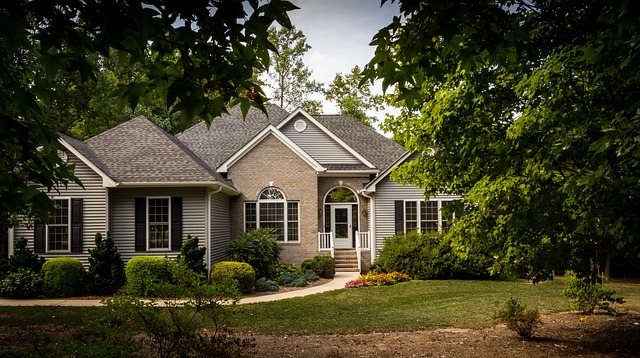Government-backed mortgage programs known as Veterans Affairs (VA) loans are intended to assist active-duty military personnel and veterans in obtaining homeownership. But a lot of people don’t know that VA loans can be an excellent resource for investing in real estate. This post will discuss the advantages of VA loan for real estate investment, how to use them, and the prerequisites to seize this exceptional chance.
Understanding VA Loans
The U.S. Department of Veterans Affairs guarantees VA loans, a unique kind of mortgage. Eligible veterans, active-duty military personnel, and specific National Guard and Reserve members can apply for these loans. VA loans are renowned for their special advantages, which consist of:
- No Down Payment: VA loans usually don’t need one, which makes them a desirable choice for people who want to buy real estate without spending all of their cash.
- Competitive Interest Rates: When compared to conventional loans, VA loans can have competitive interest rates, which can mean lower monthly mortgage payments.
- No Private Mortgage Insurance (PMI): VA loans do not require borrowers to pay for PMI, in contrast to many other mortgage programs. Over time, this can save investors a substantial sum of money.
Using VA Loans for Real Estate Investment
VA loans can be used for real estate investment, even though they are mostly meant for owner-occupied residences. Here are a few tactics to think about:
- House Hacking: Using a VA loan to buy a multi-unit home and living in one while renting out the others is known as “house hacking.” This makes it possible for investors to pay for their living needs with rental money.
- Fix and Flip: You can use VA loans to buy a property that needs remodeling. Investors may be able to recoup their costs by selling the property after performing the required upgrades and repairs.
- Rental Properties: Purchasing single-family homes or multi-unit buildings for long-term rental ventures is another usage for VA loans. A consistent flow of cash flow may be generated by the rental income.
- Vacation Rentals: VA loans have been effectively used by certain investors to buy vacation rental homes in popular tourist locations. In the busiest travel seasons, these might bring in a sizable income.
Unlocking Real Estate Wealth with House Hacking

A potent VA loan for real estate investment technique that has gained prominence recently is house hacking, which provides a special route to financial independence. With this creative method, people can live in the same property and make rental revenue. We will explore the idea of “house hacking,” its advantages, various tactics, and how to begin your road towards accumulating wealth through real estate in this post.
What Is House Hacking?
As part of a VA loan for real estate investment strategy known as “house hacking,” you reside in one unit while renting out the other units in a multi-unit building (such as a duplex, triplex, or quadplex). Rent is a great option to lower your cost of living while also investing in real estate, since the money you receive from your tenants helps to cover—or even exceed—your housing expenses.
Benefits of House Hacking
- Reduced Housing Costs
The possibility to significantly reduce or completely eliminate your housing bills, such as your mortgage, property taxes, and maintenance charges, is one of the biggest advantages of home hacking.
- Rental Income
By renting out your property to renters, you can generate passive money from house hacking that you can put towards investments, debt repayment, or savings.
- Property Appreciation
Owning a real estate property through house hacking entitles you to the potential long-term wealth accumulation of real estate properties, which have a tendency to appreciate over time.
- Hands-On Experience
Gaining first-hand experience as a landlord and real estate investor through house hacking can help you become knowledgeable and skilled in the sector.
- Diversification
You can lessen your reliance on conventional investments like stocks and bonds by diversifying your investment portfolio with real estate.
House Hacking Strategies
Various house hacking techniques can be employed, contingent upon your objectives and the nature of your property:
- Multi-Unit Property
Acquire a property with many apartments (such as a duplex, triplex, or quadplex) and occupy one while leasing the remaining units.
- Single-Family Home with ADU
Invest in a single-family house that has the option to install an auxiliary dwelling unit (ADU) or already has one. The ADU can be rented out while you reside in the main house.
- Room Rental
If you would rather stay in a single-family house, think about making money by using websites like Airbnb or by leasing out additional rooms to tenants.
- House Hacking with Housemates
Cohabitate in a single-family home with roommates to split housing expenses and earn money.
Getting Started with House Hacking
The following is a step-by-step tutorial to get you started in house hacking:
- Set Your Financial Goals
Establish your financial goals and the ways in which house hacking fits into them. Do you want to create long-term wealth, earn passive income, or lower your housing costs?
- Financing
Obtain finance for your real estate. Conventional mortgages, FHA loans, and VA loans (if you meet the requirements) can all be used for this.
- Property Search
Locate a suitable home that complements your house hacking plan and financial constraints. Think about things like the property’s nature, location, and possible rental revenue.
- Property Management
Discover the fundamentals of property management, such as how to find renters and what constitutes a lease and maintenance obligations.
- Tenant Selection
Make sure the landlord and tenant get along well by thoroughly screening prospective tenants.
- Live Smart
Maintain an appropriate balance between your duties as a renter and a landlord by establishing limits and effectively managing the property.
- Evaluate and Scale
Evaluate the return on your home hacking investment on a regular basis. If it’s a success, think about adding other homes to your real estate portfolio.
Unveiling the Secrets of Fix and Flip Real Estate
Fix and flip real estate investing has become a very popular, potentially profitable, and interesting business. This is buying run-down or distressed houses, making the necessary renovations, and then reselling them for a profit. This piece will examine the realm of fix and flip VA loan for real estate investment, including essential components, obstacles, and strategies for thriving in this ever-changing industry.
Understanding Fix and Flip Real Estate
VA loan for real estate investment: Adjust and turn Real estate investing, commonly known as “flipping,” is the practice of purchasing properties with the goal of making improvements before reselling them for a larger sum. The following essential components are usually included in the process:
- Property Acquisition
Investors look for properties with unrealized potential or ones that require renovations. Many times, these properties are dilapidated, distressed, or in need of repair.
- Renovation
Investors carry out the required repairs and enhancements after purchasing the property in order to raise its marketability and value.
- Marketing and Sale
With the intention of turning a profit, the property is relisted and sold at a premium after being renovated.
- Market Timing
In order to maximize profits, knowledgeable flippers keep an eye on market trends and try to buy and sell at the opportune times.
Benefits of Fix and Flip Real Estate
- Profit Potential
Profitable fix and flip projects have the potential to generate significant returns, making them a desirable investment option.
- Hands-On Experience
Gaining practical experience in building, real estate, and project management can be achieved through flipping.
- Real Estate Market Knowledge
Flippers gain in-depth knowledge of regional real estate markets and patterns, which can be advantageous for subsequent investments.
- Property Improvement
Flippers may help communities come alive by restoring abandoned or dilapidated buildings.
Challenges and Risks
Fix and flip real estate has its own set of dangers and obstacles, despite the fact that it can be quite lucrative:
- Financial Risk
Costly renovations may result in financial losses because market changes may have an impact on the property’s selling value.
- Time-Consuming
It might take a while to sell and renovate a property, and delays can reduce profits.
- Market Uncertainty
Variations in the real estate market may have an impact on the demand and selling price of flipped homes.
- Regulatory and Permit Challenges
Permitting restrictions and local laws may complicate the procedure.
Tips for Successful Fix and Flip Real Estate
- Thorough Research
To find lucrative prospects, thoroughly investigate the local real estate industry, taking into account demand and property valuations.
- Budget Wisely
Make a thorough budget for the project that takes all carrying, renovation, and emergency expenses into consideration.
- Select the Right Property
Select properties that are not too distressed but have good potential for improvement because large renovations can reduce revenues.
- Skilled Contractors
Collaborate with skilled artisans and contractors who can finish improvements quickly and to a high standard.
- Keep an Eye on the Market
To optimize your profits, pay attention to market patterns and sell when the moment is perfect.
- Location Matters
Location of the property is important. Seek for real estate in areas where there is room for expansion and appreciation.
Unlocking Wealth with Rental Properties
One tried-and-true strategy for accumulating money and ensuring a consistent revenue stream via the VA loan for real estate investment, is investing in rental properties. Both experienced real estate investors and those just starting out in the industry can benefit from rental properties. We’ll go over the ins and outs of rental properties in this extensive guide, covering their types, advantages, important factors, and advice for effective property management.
The Appeal of Rental Properties
Rental properties are a desirable investment choice because they provide a number of appealing advantages:
- Steady Cash Flow
Tenant rental revenue is a steady and dependable stream of cash flow that can be used to pay down the costs of the property and turn a profit.
- Appreciation
Real estate tends to increase in value over time, which could result in sizable cash gains should you choose to sell.
- Tax Benefits
Owners of rental properties can lower their tax obligations by taking advantage of tax deductions for things like mortgage interest, property taxes, and depreciation.
- Portfolio Diversification
Your investment portfolio can be diversified by making rental property investments, which will lessen your dependency on conventional assets like equities and bonds.
- Tangible Asset
Real estate offers a sense of stability and security since it is a physical asset that is visible and touchable.
Types of Rental Properties
Rental properties come in a variety of forms to suit a range of investment objectives and price ranges:
Residential Rentals
Townhouses, apartments, condos, and single-family homes fall under this category. When looking for a place to live, families and individuals frequently choose residential rentals.
Commercial Rentals
Office buildings, retail establishments, industrial warehouses, and hospitality facilities like motels and restaurants are examples of commercial rental properties. Usually, they are employed in the business world.
Vacation Rentals
Travelers can rent vacation properties for a brief period of time. Property owners now find it simpler to enter the holiday rental market because to well-known websites like VRBO and Airbnb.
Multi-Unit Properties
Multiple units are housed in one building in multi-unit structures like duplexes, triplexes and quadplexes. This enables a single property to generate several sources of rental revenue.
Key Considerations for Rental Property Investment
- Location
VA loan for real estate investment: A rental property’s location is crucial. The value of a property and the demand from tenants can be greatly impacted by factors like the accessibility of amenities, schools, and transportation.
- Property Selection
Select a property that fits your investment objectives. Single-family homes, for instance, might draw long-term renters, but short-term income from vacation rentals might be higher.
- Financing
Establish your spending limit and receive the money you need to buy the house, such as a mortgage loan. Evaluate your ability to use rental money to pay for other expenses, such as a mortgage.
- Property Management
Choose if you want to employ a property management company or manage the property yourself. Sustaining the property and guaranteeing renter happiness require efficient property management.
- Tenant Screening
Establish a rigorous screening procedure for potential tenants to choose trustworthy, accountable, and well-off renters. This can reduce possible problems and openings.
Tips for Successful Property Management
- Regular Maintenance: Maintaining the property’s worth and keeping it in excellent condition requires routine maintenance and repairs.
- Effective Marketing: Effectively market your home to draw in potential tenants. Make use of eye-catching property descriptions, excellent images, and internet listings.
- Clear Lease Agreements: Create thorough lease agreements that specify the obligations of the tenant, the terms of rent payment, and the property’s regulations.
- Tenant Communication: Tenant complaints, repairs, and maintenance requests should be swiftly addressed by keeping lines of contact open and responsive.
- Financial Management: Maintain thorough financial records to keep tabs on earnings and outlays, which will facilitate tax preparation and financial analysis.
- Stay Informed: Stay informed about current landlord-tenant rules, market trends, and local housing laws to guarantee compliance and make wise judgements.
Lastly On VA loan for real estate investment
For qualified veterans and service members, VA loan for real estate investment can be a wise financial decision. VA loan for real estate investment are an advantageous tool for real estate investors because of the benefits of no down payment, reasonable interest rates, and the lack of PMI. To prevent any problems, it is necessary to comprehend and abide by the VA’s eligibility standards and occupancy guidelines. VA loans can enable you to take advantage of homeownership benefits and successfully create a real estate portfolio with cautious planning and prudent investing tactics.






